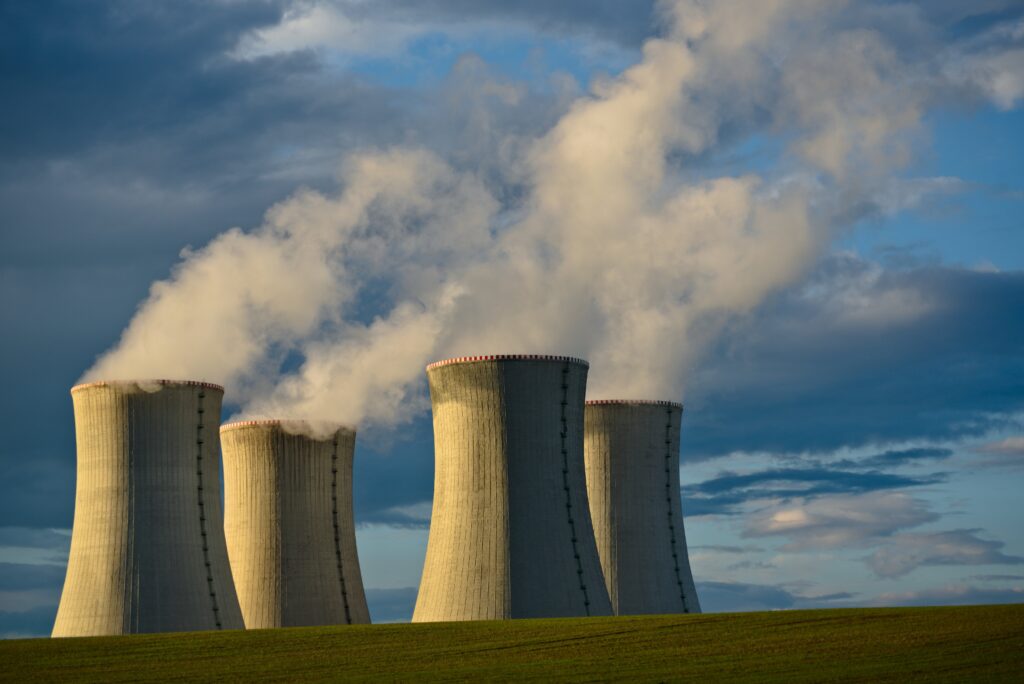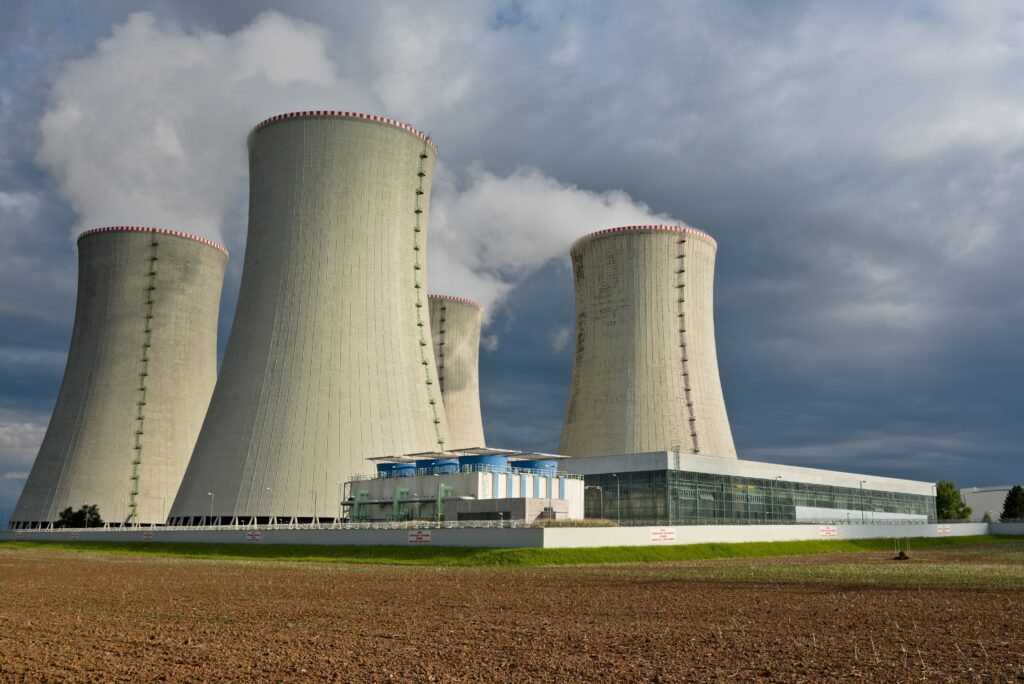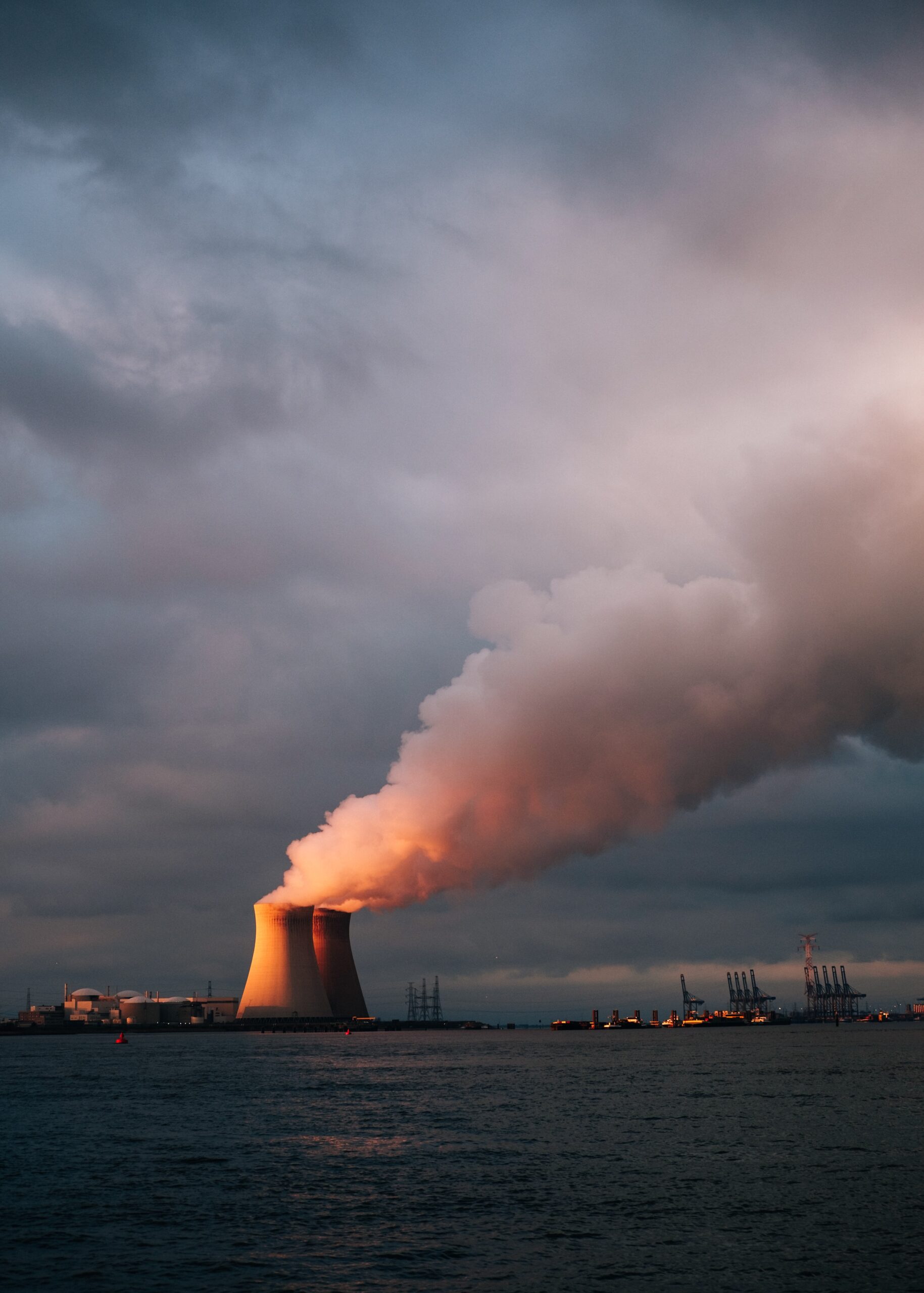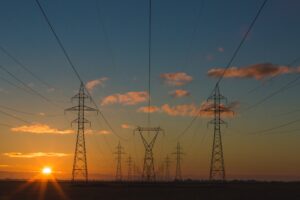A Comprehensive Introduction to the Nuclear Energy Debate
For decades, nuclear energy has been at the forefront of global discussions on sustainable power generation. As nations grapple with the dual challenges of escalating energy demands and the imperative to reduce carbon emissions, the question arises: “What Are The Pros And Cons Of Nuclear Energy?” The nuclear option often takes center stage in this debate.
Proponents laud nuclear energy for its unmatched efficiency and its potential to generate vast amounts of electricity with minimal greenhouse gas emissions. They see it as a bridge between the fossil fuel-dominated present and a renewable energy-powered future, given the current technological constraints of renewables to supply base-load power continuously.
However, just as there are compelling arguments in favor of nuclear energy, there are equally fervent reservations. “What Are The Pros And Cons Of Nuclear Energy?” is a question that brings to light concerns like the shadowy specter of nuclear disasters like Chernobyl and Fukushima, and the yet unresolved conundrum of long-term radioactive waste disposal. These concerns, which touch upon both human safety and environmental conservation, represent substantial challenges to the broader acceptance of nuclear energy.
But like all complex subjects, understanding “What Are The Pros And Cons Of Nuclear Energy?” is not about viewing it through a binary lens of ‘good’ or ‘bad.’ It’s about delving deep into its multifaceted nature, considering the nuances, technological advancements, economic implications, and the geopolitical landscape.
This article aims to explore the intricate tapestry of arguments surrounding nuclear energy, to provide readers with a holistic view of its benefits and challenges. Through this balanced exploration, you’ll be equipped to form an informed perspective on the role nuclear energy should, or should not, play in shaping our sustainable future.
Check Out Our Top Eco Friendly Product Picks On Amazon Here
What Are The Pros And Cons Of Nuclear Energy: The Pros
Low Greenhouse Gas Emissions
Perhaps the most significant advantage of nuclear power is its minimal greenhouse gas emissions. Unlike conventional fossil fuels, such as coal, oil, and natural gas, nuclear energy relies on nuclear reactions to produce electricity. This process does not produce carbon dioxide, methane, or other greenhouse gases that are responsible for climate change. With global temperatures on the rise and the subsequent harmful effects on ecosystems, nuclear power presents a cleaner alternative. By decreasing our reliance on fossil fuels and increasing our use of nuclear energy, we can make a substantial contribution to slowing down the progression of global warming.
High Energy Density
The energy density of nuclear fuel is truly extraordinary. To illustrate, consider this: a single uranium fuel pellet, roughly the size of a fingertip, contains as much energy as 3 barrels of oil, 1 ton of coal, or 17,000 cubic feet of natural gas. This immense energy potential arises from the splitting of atoms – a process known as nuclear fission. As the nucleus of an atom splits, it releases a tremendous amount of energy. This quality allows countries with limited natural resources to produce vast amounts of electricity from small amounts of nuclear fuel, making it an efficient solution for many nations’ energy needs.
Reliable Power Source
The reliability of nuclear power cannot be overstated. Solar and wind energy, while essential in the global shift towards cleaner energy, are intermittent sources. Sunlight and wind patterns can be unpredictable, making power generation from these sources inconsistent at times. In contrast, nuclear power plants, once operational, can run uninterrupted for 18-24 months before requiring refueling. This consistency ensures a steady power supply, making nuclear energy an indispensable pillar in the energy portfolios of many nations.
Constant Energy Production
In the realm of electricity production, the term “base load” refers to the minimum amount of electric power needed to be supplied to the electrical grid at any given time. Nuclear energy excels in providing this baseload power. While certain energy sources, like natural gas or coal, can experience supply disruptions or require significant ramp-up and ramp-down periods, nuclear power plants can steadily produce power at near maximum output, day and night. This constant output means that when you flick a switch in your home, nuclear energy plays a part in ensuring that electricity is always available.
Suitability for Large-Scale Electricity Generation
As urbanization continues and the global population grows, the need for electricity expands exponentially. Mega-cities, sprawling industries, and vast transportation networks all require copious amounts of power. Nuclear energy is uniquely poised to meet these large-scale demands. A single nuclear power plant can produce several gigawatts of electricity, enough to power millions of homes. Moreover, the compactness of nuclear facilities, compared to vast solar farms or wind parks, means they require less land, making them especially suitable for regions with limited available space.
While nuclear energy has its challenges, such as waste disposal and safety concerns, its benefits are profound. As the world grapples with the dual challenges of rising energy demands and the need for cleaner energy sources, nuclear power stands out as a potential solution. With ongoing advancements in technology and safety protocols, the promise of nuclear energy remains bright for a sustainable future.

Check Out Our Top Eco Friendly Product Picks On Amazon Here
What Are The Pros And Cons Of Nuclear Energy: The Cons
Radioactive Waste Disposal
The conundrum of radioactive waste disposal is one of the most pressing issues associated with nuclear energy. The nuclear power process produces various radioactive by-products, such as spent fuel rods, which contain a mix of unspent uranium and highly radioactive fission products. The challenge with these wastes is their persistence; they remain radioactive and hazardous for periods ranging from a few years to millions of years.
Given this longevity, merely burying the waste in deep geological repositories isn’t just a matter of “out of sight, out of mind.” There’s a genuine concern about the possibility of these materials leaching into groundwater or being exposed through natural events, potentially impacting human and ecological health. Scientists and researchers worldwide are continuously seeking innovative methods, such as advanced reprocessing techniques or transmutation, to address the radioactive waste dilemma more effectively.
Risk of Accidents
Accidents in the realm of nuclear energy can lead to catastrophic results. While the frequency of severe nuclear accidents is low, their potential severity is incredibly high. Incidents like the Chernobyl disaster in 1986 resulted in direct fatalities and led to widespread radioactive contamination, with long-term health impacts for millions.
Similarly, the 2011 Fukushima Daiichi nuclear disaster highlighted the vulnerability of nuclear power plants to external events, in this case, a massive tsunami. Modern nuclear power plants are designed with multiple safety barriers to prevent accidents, but no system is immune to unforeseen circumstances. The onus is on nuclear agencies and governments to prioritize safety enhancements, rigorous training, and disaster response preparedness.
High Initial Costs
Establishing a nuclear power plant is a formidable financial undertaking. Beyond the physical infrastructure, considerations like land acquisition, regulatory compliance, and advanced technology integration contribute to the significant capital needed. These expenses can sometimes be a deterrent for countries, especially those with limited resources, from adopting nuclear energy.
It’s worth noting that while the startup cost is significant, the operational cost of a nuclear power plant over its lifecycle can be comparatively low. This factor is due to the high energy yield of nuclear reactions and the long operational life of most nuclear facilities, often spanning several decades.
Limited Uranium Supply
Uranium, the primary fuel for most nuclear reactors, is a non-renewable resource. While current estimates suggest that known uranium resources can last for many decades at current consumption rates, the reality is that these reserves are finite. As with any non-renewable resource, extraction becomes more challenging and environmentally impactful as the easily accessible deposits are depleted.
This raises questions about nuclear energy’s sustainability in the very long run. Research into alternative nuclear fuels, like thorium, and the development of breeder reactors that produce more fuel than they consume, might offer avenues to mitigate these concerns.
Environmental Impact
Nuclear energy’s environmental footprint is multifaceted. While it’s championed for its zero greenhouse gas emissions during operation, other environmental concerns linger. The vast quantities of water required for cooling, for instance, can result in thermal pollution if hot water is discharged back into water bodies, potentially harming aquatic life.
Moreover, mining activities to extract uranium can lead to deforestation, habitat destruction, and groundwater contamination. These challenges underscore the importance of rigorous environmental oversight, regular impact assessments, and proactive mitigation measures to ensure that nuclear energy remains a sustainable choice.
In summary, while nuclear energy offers a promising solution to the world’s growing energy needs, it comes with an array of challenges that demand attention, innovation, and a commitment to safety and sustainability. As the discourse on nuclear energy evolves, it’s crucial to weigh these challenges against the potential benefits, fostering informed decisions on our energy future.

What Are The Pros And Cons Of Nuclear Energy: Advantages and Challenges
In today’s rapidly evolving energy landscape, the quest for efficient and sustainable energy sources is paramount. Nuclear energy, a stalwart of the energy industry, is increasingly emerging as a topic of debate. While the source presents a plethora of advantages, it isn’t without its share of challenges. A careful examination of these merits and concerns is essential when deliberating its role in our future energy mix.
One of the most compelling advantages of nuclear energy is its remarkably low greenhouse gas emissions. At a time when climate change has become a significant global concern, the transition to energy sources with minimal carbon footprints is essential. Unlike fossil fuels, which release vast amounts of carbon dioxide when burned, nuclear power plants emit negligible greenhouse gases. This makes nuclear energy a potentially powerful ally in the fight against global warming.
Furthermore, the high energy density of nuclear fuels stands out. A small amount of nuclear fuel can produce a substantial amount of energy, ensuring that nuclear power plants can provide a stable and consistent energy supply. This consistency makes nuclear energy a reliable power source, especially when compared to intermittent renewable sources like solar and wind. As nations strive to meet their growing energy demands, the efficiency and dependability of nuclear energy cannot be overlooked.
However, like all energy sources, nuclear energy is not without its challenges. One of the most significant concerns has always been the disposal of radioactive waste. This waste remains hazardous for thousands of years and poses potential risks to both the environment and public health. Securing safe and long-term storage solutions remains a daunting task.
Accidents related to nuclear energy, although rare, can have catastrophic consequences. The world has witnessed events like the Chernobyl and Fukushima disasters, reminding us of the importance of ensuring maximum safety protocols. Moreover, the high initial costs of setting up nuclear power plants can be a deterrent. These plants require massive capital investment, which can be prohibitive for many nations.
Another challenge that needs attention is the limited supply of nuclear fuel, particularly uranium, which is the primary fuel for most nuclear reactors. While the resource is abundant, easily accessible supplies might become scarcer over time, which could drive up costs.
However, with adversity comes opportunity. By prioritizing continuous improvements in safety measures and investing in robust research and development initiatives, the nuclear energy sector can pave the way for more secure and efficient operations. Exploring alternative nuclear fuels, such as thorium, can also help address the issue of limited fuel supplies.
What Are The Pros And Cons Of Nuclear Energy: Conclusion
In conclusion, while nuclear energy offers undeniable advantages, it’s imperative to approach its adoption with caution, bearing in mind the challenges it presents. A holistic strategy, encompassing a thorough evaluation of its potential benefits and a proactive approach to overcoming its challenges, will determine the future trajectory of nuclear energy in our global energy portfolio.
Nuclear energy presents a range of pros and cons that should be carefully evaluated when considering its use as a primary energy source. With its low greenhouse gas emissions, high energy density, and reliability, nuclear energy offers significant advantages for large-scale electricity generation. However, challenges such as radioactive waste disposal, the risk of accidents, high initial costs, and limited fuel supply must also be taken into account.
By continuously improving safety measures, investing in research and development, and exploring alternative fuel sources, we can maximize the benefits of nuclear energy while minimizing its drawbacks. Ultimately, the decision to embrace nuclear energy should involve a comprehensive assessment of its potential benefits and the development of strategies to address its associated challenges.




